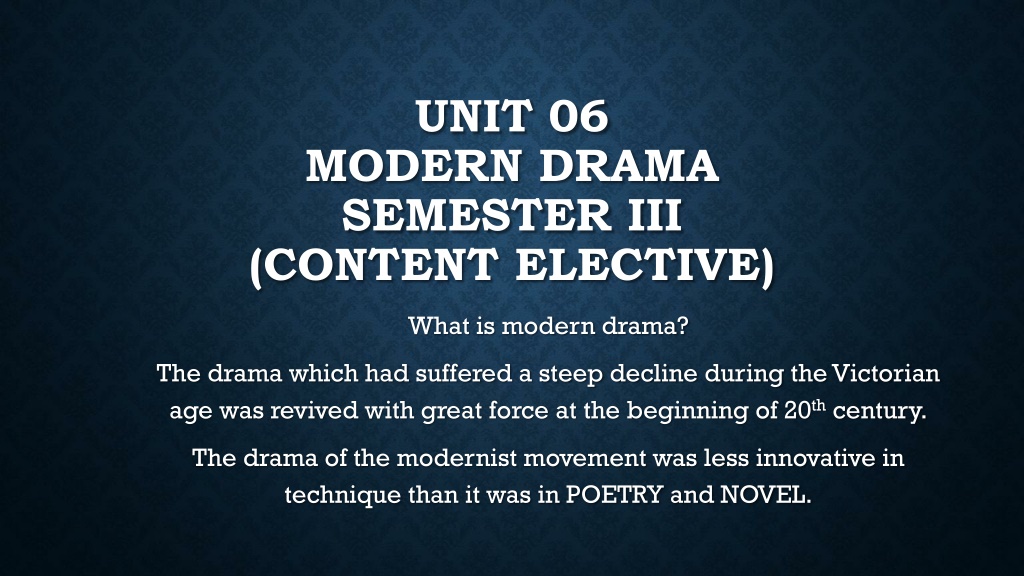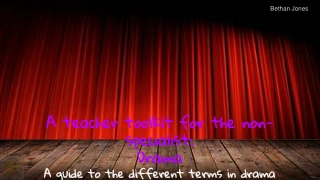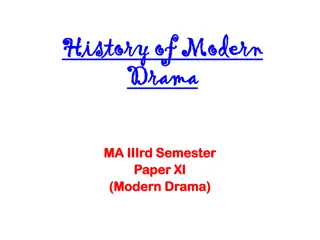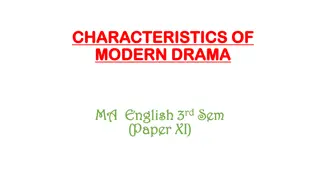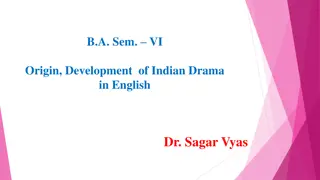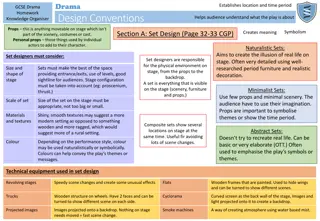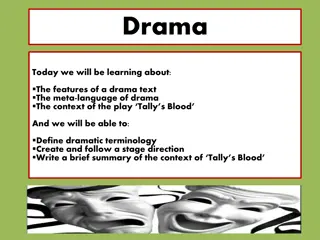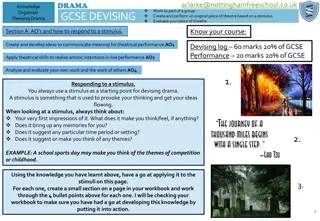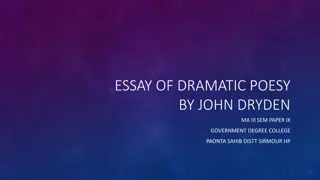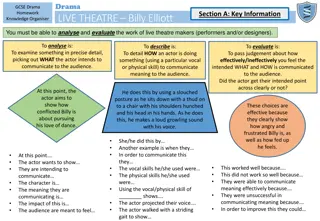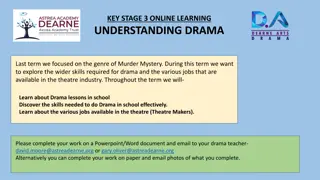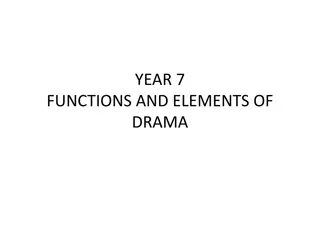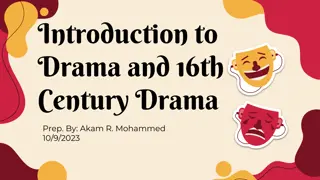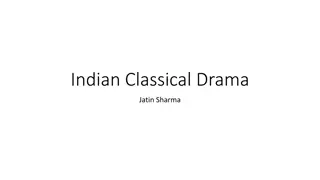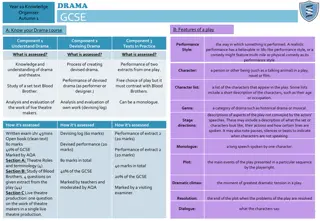Exploring Modern Drama: History and Characteristics
Modern drama, revived in the early 20th century after a decline in the Victorian age, encompasses realism, plays of ideas, romanticism, and poetic elements. English drama during the modernist period is categorized into phases marked by influential playwrights like Henrik Ibsen, G.B. Shaw, T.S. Eliot, and others. It emphasizes portraying real-life problems and societal reforms through intelligent storytelling and exploration of historical and biographical themes.
Download Presentation

Please find below an Image/Link to download the presentation.
The content on the website is provided AS IS for your information and personal use only. It may not be sold, licensed, or shared on other websites without obtaining consent from the author. Download presentation by click this link. If you encounter any issues during the download, it is possible that the publisher has removed the file from their server.
E N D
Presentation Transcript
UNIT 06 MODERN DRAMA SEMESTER III (CONTENT ELECTIVE) What is modern drama? The drama which had suffered a steep decline during the Victorian age was revived with great force at the beginning of 20thcentury. The drama of the modernist movement was less innovative in technique than it was in POETRY and NOVEL.
HISTORY OF MODERN DRAMA English drama during the modernist period (1845-1945) falls into three categories: The first and the earliest phase of modernism in English Drama is marked by the plays of G.B Shaw and John Galsworthy, which constitute social drama on the plays of Henry Ibsen. The Second and the middle phase of Modernist English drama is based on the Irish plays by some elites like Yeats. During this phase the drama was based on the spirit of Nationalism. The Third and the final phase of Modernist English drama comprise plays of T.S. Eliot and Christopher Fry. This phase witnessed the composition of Poetic dramas. The three different categories reflect the three different phases as well as three different facets of MODERN ENGLISH DRAMA.
MODERN DRAMA CHARACTERISTICS REALISM: Realism is the most important and outstanding quality of Modern English Drama. The Dramatists of the early 20thcentury were interested in Naturalism. It was their die hard effort to portray the real life of people in a realistic technique. It was Henrik Ibsen, the Norwegian dramatist who popularized Realism in Modern Drama. He dealt with the problems of real life in a realistic manner. His example was followed by Robertson Arthur Jones, Galsworthy and G.B Shaw in their plays. The Modern Drama dealt with problem plays like problems of marriages, justice, law, administration. They used theatre as a means for bringing about reforms in society prevailing in their days. Henrik Ibsen s plays A Doll s House is a good example of problem play.
PLAY OF IDEAS Modern drama is a drama of ideas rather than action. Modern drama dealing with problems of life has become far more intelligent than ever. With the treatment of actual life the drama became more and more drama of ideas.
ROMANTICISM The earlier dramatists of the 20thcentury were Realists at the core, but with the passage of time brought a new trend in Modern Drama. Romanticism which had been very dear to Elizabethan dramatists, found its way in Modern Drama and it was mainly due to Sir J.M. Barrie s efforts that the new wave of Romanticism swept over Modern Drama. Barrie kept aloof from realities of life and made excursions into the world of Romance.
POETIC PLAYS T.S Eliot was the main dramatist who gave importance to poetic plays. Stephen Philips, John Drink Water, Yeats etc were from those who wrote poetic plays. HISTORICAL AND BIOGRAPHICAL PLAYS: Another trend in Modern Drama is in the direction of using History and Biography for dramatic technique. There are many dramatic and beautiful history plays in the Modern Dramatic Literature. Shaw s Caesar and Cleopatra are historical plays of great importance. John Drink Water s Abraham Lincoln and Mary Stuart are among the examples.
IRISH MOVEMENT AND COMEDY OF MANNERS AMONG GREATER TRENDS A new trend in Modern English drama was brought about by Irish dramatists who brought about the Celtic Revival. In the hands of Irish Dramatists like Yeats, J.M. Synge, T.C. Murray etc drama ceased to be in realistic manner and became an expression of the hopes . There is the revival of the comedy of manners, in modern English Drama. Oscar Wilde, Maugham, N. Coward, etc have done much to revive the comedy of wit in our days.
IMPRESSIONISM It is a movement that shows the effects of things and events on the minds of artists and the attempt of artists to express his expressions. In the impressionistic plays of W.B. Yeats the main effort is in the direction of recreating the experience of the artist and his impressions about reality.
EXPRESSIONISM It is a movement that tries to explain the expressions and feelings/emotions of the people rather than objects. Expressionism is another great feature of modern drama. The movement which had started early in Germany made its way in England Drama and several modern dramatists like J.B. Priestley, Sean O Casey, have made experiments in the expressionistic tendency in modern drama.
